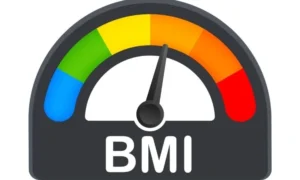What is Obesity? What are the Symptoms of Obesity? What BMI is Obese?
Here is a brief summary for you;
Obesity is a treatable medical condition that is characterized by a body mass index (BMI) of 30 or higher. However, with proper treatment, these risks can be mitigated. It can lead to serious health risks due to excessive fat accumulation and is associated with various diseases, including heart disease, diabetes, hypertension, high cholesterol, liver problems, and sleep apnoea. Weight loss can be achieved through increased physical activity, healthy eating habits, and behavioural changes. In some cases, drug therapies or obesity-specific surgical interventions may also be considered as treatment options.
What is Obesity?
Obesity is a condition associated with excessive fat accumulation, especially in the abdomen and internal organs, and is the source of many health problems. Fat around the abdomen can increase the risk of arteriosclerosis, high blood pressure, elevated cholesterol levels, vascular occlusion, heart attack and stroke. It can also lead to metabolic diseases such as type 2 diabetes, liver disorders and sleep apnoea. Obesity can lead to asthma and other lung diseases by making breathing difficult and can cause body cells to not receive enough oxygen. In advanced stages, it can disrupt hormone balance, leading to infertility in both men and women. Some studies also show that obesity may increase the risk of developing cancer. Today, obesity has become a common health problem affecting many people.
What are the Symptoms of Obesity?
The most obvious sign of obesity is the increase in body fat. The symptoms that occur as obesity progresses can be listed as follows:
- Increased fat in the waist area
- Sleep apnoea, snoring and inability to fall asleep
- Constant and intense sweating
- Difficulty breathing
- Difficulty with physical activities
- Constant feeling of fatigue and weakness
- Skin problems: rashes, acne and infections
- Joint and back pain
- Pain in the legs due to excess weight
- Psychological problems such as depression and withdrawal from society
- Intolerance to high temperatures
Obesity Calculator
Various methods are employed to determine the presence of obesity in individuals. The primary method is the calculation of the Body Mass Index (BMI). In this method, a person’s weight in kilograms is divided by their height in meters squared. A BMI of 30 or higher is indicative of obesity.
Another key measure is the waist circumference. This measurement assesses the fat around the abdominal area, often linked to numerous health issues. For women, a waist circumference exceeding 88 cm, and for men, exceeding 102 cm, is considered a sign of obesity.
A further indicator is the waist-to-hip ratio, which varies between genders. It is calculated by dividing the waist circumference by the hip circumference, both measured in centimeters. In this case, a ratio of 0.9 or higher for women and 1 or higher for men is categorized as obesity.
These metrics serve as general tools for diagnosing obesity. Individuals can easily measure these themselves. However, if one’s measurements suggest overweight or obesity, it’s crucial to seek medical attention from healthcare professionals, including doctors and dietitians. Neglecting obesity can lead to severe, potentially life-threatening diseases.
Obesity Surgery
Obesity surgery is a treatment option for people with so-called morbid obesity and a body mass index (BMI) over 40. This surgical procedure requires a multidisciplinary perspective and all laboratory tests and health status of the patient are evaluated by the doctor. After the surgery, psychological support and dietitian counselling are vital. The patient’s new diet should be carefully managed for a long time and both physical and mental support should be provided.
Obesity surgery is usually applied to individuals with morbid obesity, where diet and lifestyle changes are inadequate. This surgery is not performed on people with excessive smoking and alcohol consumption or people with other health problems that prevent surgical intervention.
Obesity is a widespread and increasing health problem worldwide. It prepares the ground for a number of diseases by affecting many mechanisms in the body, and in advanced cases, life-threatening conditions such as cancer and heart attack may occur. For these reasons, treatment of obesity is mandatory. Letsmedi offers professional services in this field with experienced doctors and dietitians in obesity treatment.
Some Obesity Treatments;









